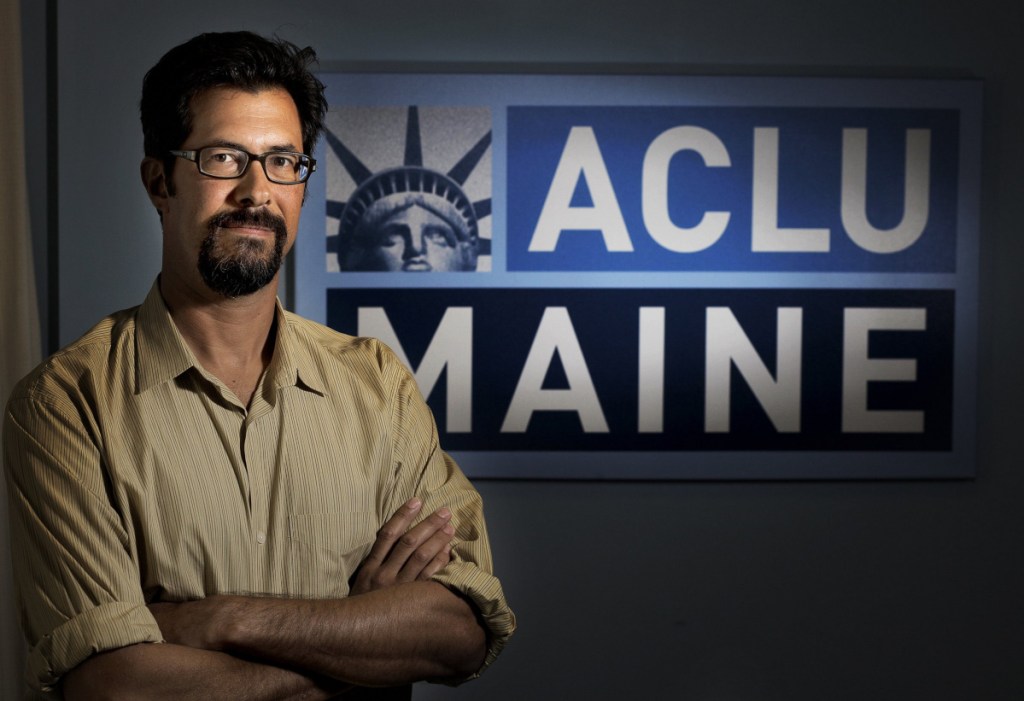A civil rights watchdog group wants to join a federal lawsuit over a Maine law that bars tuition reimbursements for religious schools.
Three Maine families filed the complaint against the state Department of Education in August in U.S. District Court in Bangor. The plaintiffs are represented by two national groups that advocate for religious liberty and school choice.
They are challenging a decades-old statute in Maine. Local school administrative units that do not have their own secondary schools can pay a certain amount in tuition for students to go to outside public or private schools. But that money cannot be used at religious schools, a policy that their lawsuit calls discriminatory and unconstitutional.
On Tuesday, the national and state American Civil Liberties Union, along with the Americans United for Separation of Church and State, filed a motion to intervene in that case. Their groups want to argue that it is unconstitutional to force states to fund religious education.
“Maine’s state and federal courts have consistently held that Maine’s law is constitutional because taxpayers cannot be required to pay to teach children how to pray,” Zachary Heiden, legal director at the ACLU of Maine, said in a written statement. “We’ve helped defend this law four times already, and we hope to do so again.”
A spokesperson for the Department of Education declined to comment on the case. The motion states that the Maine Attorney General’s Office, which represents the department’s commissioner, does not oppose the request.
Tim Keller, a senior attorney on the case at the Virginia-based Institute for Justice, said the plaintiffs oppose the motion.
“The proposed intervenors do not have standing to intervene in this case,” Keller wrote in an email. “In 2002, the U.S. Supreme Court made it clear that there is no constitutional violation if states empower families to choose religious options as part of an educational choice program. The obvious corollary to that ruling, which has been confirmed by more recent Supreme Court precedent, is that states cannot discriminate against families who desire a religious education when families are permitted to choose between private options. The proposed intervenors cannot claim any constitutional harm should the plaintiff-parents prevail in striking down Maine’s exclusion of sectarian schools from its town tuitioning program.”
More than 30 states have constitutional amendments that prohibit state funding of religious organizations, including schools. Though Maine is not one of them, it passed a law in 1981 that bars public funding for sectarian schools. Legislative efforts to expand school choice and give taxpayer money to religious schools have failed to gain traction in recent years.
This is the third time the Institute for Justice has filed a legal challenge in Maine over this issue. The law firm took similar cases in 1997 and 2002, losing both times. The Maine affiliate of the ACLU was granted intervenor status in both lawsuits, according to the motion.
The group saw an opening to try again after a U.S. Supreme Court ruling last year. In that case, Trinity Lutheran Church in Missouri was barred from participating in a state program that reimburses the cost of rubberizing playground surfaces. The nation’s highest court ultimately decided the church should be eligible for that public funding. So the Institute for Justice joined with the Texas-based First Liberty Institute to represent the three Maine families, who live in Palermo, Glenburn and Orrington.
If the lawsuit is successful, it would not affect districts that contract to send all their students to outside high schools as a group. It is not clear how many students live in districts that reimburse their parents for tuition at the high school of their choice. Keller said the Institute for Justice has identified a handful of districts with that policy, mostly in Penobscot, Kennebec and Lincoln counties.
The state filed its answer to the complaint in September, rebutting the arguments from the Institute for Justice and its plaintiffs.
The American Civil Liberties Union and the Americans United for Separation of Church and State filed their motion to intervene on behalf of three people who live in Regional School Unit 12, which includes Palermo. The motion states those residents “are opposed to their tax dollars being used for quintessential religious activity, such as the teaching of religious doctrine and training in religious observance.”
The plaintiffs have until Nov. 20 to respond to the motion to intervene, and then the judge will issue an order.
Megan Doyle can be contacted at 791-6327 or at:
mdoyle@pressherald.com
Twitter: megan_e_doyle
Send questions/comments to the editors.


